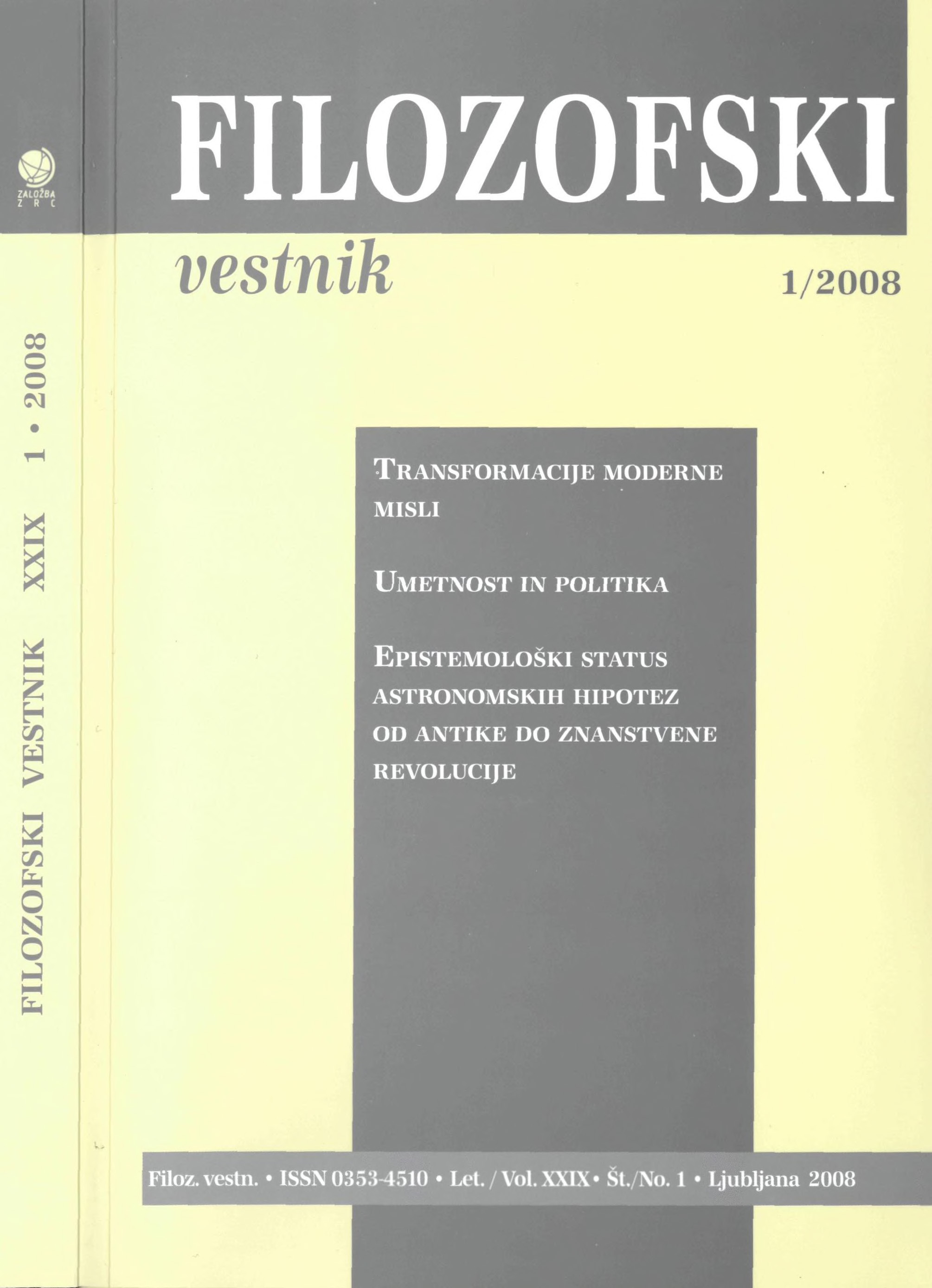»Astronom-filozof«: geneza koncepta in njegov pomen
Ključne besede:
astronomija, filozofija, astronom-filozof, KopernikPovzetek
Galileo Galilei je v svojem slavnem Dialogu o dveh glavnih sistemih sveta, ptolemajskem in kopernikanskem Koperniku pripisal status »astronoma-filozofa«. Heliocentrična astronomija je posledično rezultat dejstva, da se Kopernik ni zadovoljil zgolj z »reševanjem pojavov«, kar je bila tradicionalna naloga astronomije, temveč je menil, da mora astronomija odgovoriti tudi na filozofska vprašanja o ustroju vesolja. V članku najprej obravnavamo klasično Geminovo opredelitev nalog in epistemološkega dometa astronomije in filozofije, nato pa prek kratke analize astronomije Peurbacha in Regiomontana pokažemo, kako je ločnica med astronomijo in filozofijo v določeni meri padla že v poznem srednjem veku oziroma renesansi. V zadnjem delu članka analiziramo, kaj je program »filozofske« astronomije pomenil za Kopernika in njegovo delo. Kopernik je z »astronomsko-filozofskim« programom, katerega posledica je bila heliocentrična različica ptolemajske astronomije, odgovoril na averroistični izziv obuditve homocentrične astronomije, s katero so skušali nekateri avtorji vzpostaviti astronomijo na že vzpostavljenih, pravih filozofskih načelih (Amico, Fracastroro). V nasprotju z njimi je Kopernik vzpostavil astronomijo, ki ji je sam našel prava filozofska načela (gibanje Zemlje).Prenosi
Podatki o prenosih še niso na voljo.
Prenosi
Objavljeno
2016-03-05
Kako citirati
Vesel, M. (2016). »Astronom-filozof«: geneza koncepta in njegov pomen. Filozofski Vestnik, 29(1). Pridobljeno od https://ojs.zrc-sazu.si/filozofski-vestnik/article/view/4413
Številka
Rubrike
Transformacije moderne misli
Licenca
Avtorji jamčijo, da je delo njihova avtorska stvaritev, da v njem niso kršene avtorske pravice tretjih oseb ali kake druge pravice. V primeru zahtevkov tretjih oseb se avtorji zavezujejo, da bodo varovali interese založnika ter da bodo povrnili morebitno škodo.
Podrobneje v rubriki: Prispevki





